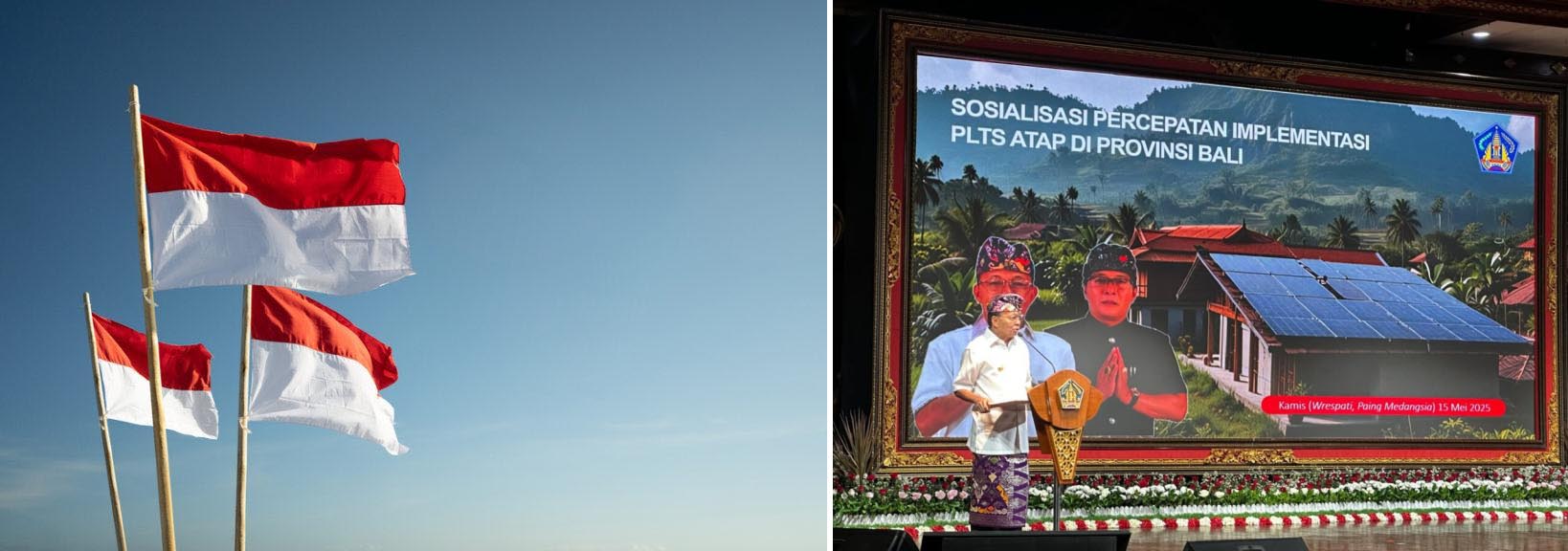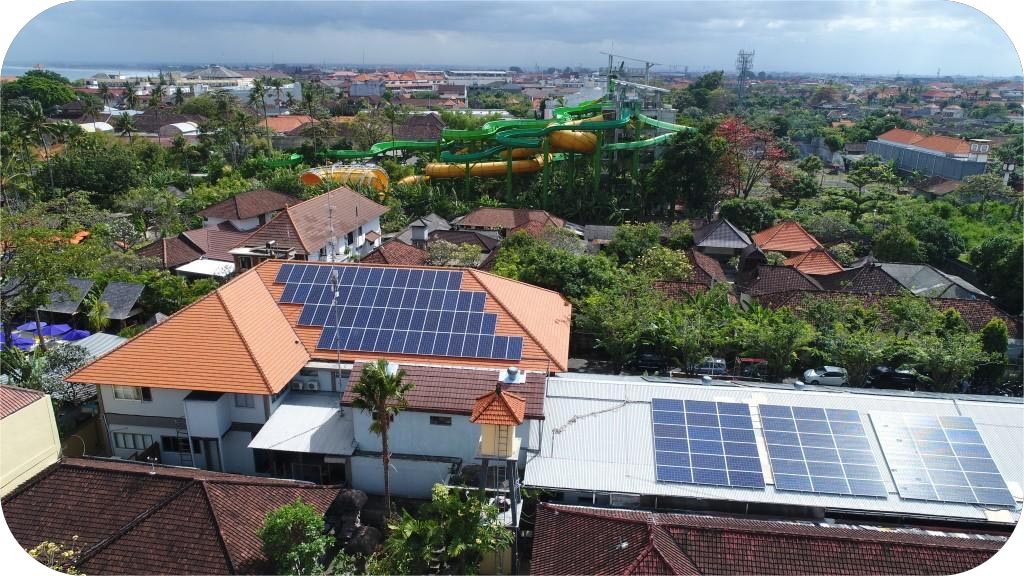Bali province in Indonesia has introduced an integrated rooftop solar acceleration program to fast-track the adoption of solar energy storage systems. This initiative aims to reduce reliance on fossil fuels and advance sustainable energy development by prioritizing solar PV installations in government buildings, public facilities, and businesses. Through policy reforms, technical support, and community collaboration, the program not only aligns with environmental goals but also fosters public engagement, setting a model for renewable energy transitions.

Bali Governor, I Wayan Koster, launching the Acceleration of Rooftop Solar Power Utilization program
Key Features of Bali's Rooftop Solar Acceleration Program
- 1. Background & Objectives
⭐ Initiator: Led by Bali Governor, I Wayan Koster, to accelerate rooftop solar PV deployment.
⭐ Goals:
• Cut fossil fuel dependence (currently dominant, with only 1% of Bali's solar potential utilized).
• Decarbonize the energy storage system to achieve net-zero emissions by 2045 (Indonesia’s national target: 2060). - 2. Scope & Mandatory Measures
⭐ Target Sectors:
• Public Sector: Mandatory rooftop solar installations for provincial, district, and city government offices.
• Commercial & Civic Facilities: Hotels, villas, schools, campuses, and markets must adopt rooftop PV.
⭐ Regulations: Rooftop solar becomes a standard energy storage solution for all listed sectors.
- 3. Technical Strategy
⭐ Battery Storage Integration: Pair rooftop solar with Battery Energy Storage Systems (BESS) to reduce reliance on Java's grid (currently supplies 25-30% of Bali's electricity via cables).
⭐ Solar Potential: Bali's total solar capacity reaches 22 GW, with rooftop potential at 3.3-10.9 GW (only 1% developed so far).
- 4. Policy Support Requirements
⭐ System Reforms: Urge the Indonesian government to scrap solar quotas and reintroduce net-metering policies (allowing excess power sales to the grid).
⭐ Funding Incentives: Provide policy and financial support for solar PV + BESS systems in commercial and industrial buildings.
- 5. Social Impact & Collaboration
⭐ Model for Transition: As Indonesia's cultural and tourism hub, Bali aims to showcase an equitable, community-driven energy transition.
⭐ Public Participation: Rooftop solar symbolizes citizen action in environmental protection.
⭐ Partnerships: Strengthen cooperation among local governments, state-owned utility company PLN, educational institutions, businesses, and civil society.
- 6. Current Progress
As of August 2024, Indonesia's total solar capacity exceeds 700 MW (data: IESR). However, Bali's solar development lags, requiring urgent acceleration.

Conclusion
Bali's rooftop solar program combines mandatory regulations, technological innovation, policy reforms, and multi-stakeholder collaboration to transition from fossil fuels to renewable energy. It emphasizes environmental goals, community involvement, and Bali's role as a leader in sustainable energy in Southeast Asia.
Power Your Projects with YouthPOWER
As a leading manufacturer of UL/IEC/CE-certified solar lithium batteries for homes and businesses, YouthPOWER delivers reliable battery energy storage solutions to accelerate Bali's energy transition. Enhance your solar projects with high-performing, compliant storage battery systems.
Contact us today: sales@youth-power.net
Post time: May-20-2025

